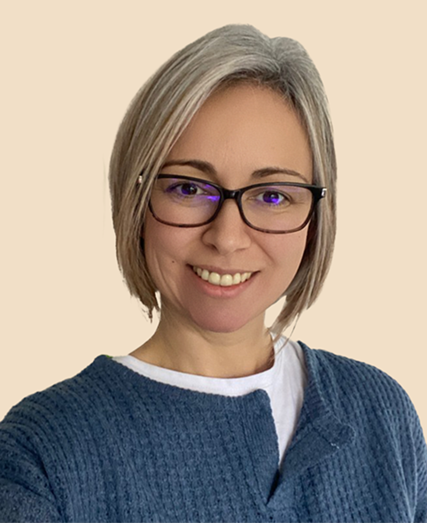About
The course teaches students comprehensive and specialised subjects in entrepreneurial leadership and management for various business situations; it develops skills in critical thinking and strategic planning for changing and fast-paced environments, including financial and operational analysis; and it develops competences in leadership, including autonomous decision-making, and communication with employees, stakeholders, and other members of a business. These generalized MBA insights are firmly rooted in a curriculum focused on innovation, social entrepreneurship, finance, and technology. Specialised MBA programmes aims to refine the expertise in the specific field.
Target Audience
Ages 19-30, 31-65, 65+
Target Group
The course is suited for executives and general business managers in organisations of all sizes and types, or for those who will soon move into such management positions. It is designed for those that will have responsibility for planning, organising, and directing business operations. Some of the specific pathways will have associated audiences.
For example the MBA in International Business is suited for executives and general business managers, or aspirants to these roles, who work in organisations with global reach and need to enhance their understandings of internationalisation and cross-cultural aspects of work and business.
Similarly, the MBA in Technology Leadership is suited for business leaders at the forefront of digital and technological transformation in their organisations.
In all cases, the target group should be prepared to pursue substantial academic studies fitting to the MQF level.
Mode of attendance
Full-Time and Part-Time
Structure of the programme
Please note that this structure may be subject to change based on faculty expertise and evolving academic best practices. This flexibility ensures we can provide the most up-to-date and effective learning experience for our students.
Full-Time: 50 Weeks, 1 Year, or 3 Semesters (2250 hrs at ~45 hrs/week)
Semester I (~17 weeks): Tier One Foundational modules (30 ECTS, 750 hrs) result in 1 semester of coursework (~45 hrs/week)
Semester II (~17 weeks): Tier Two Specialisation modules (30 ECTS, 750 hrs) result in 1 semester of coursework (~45 hrs/week)
Semester III (~17 weeks): Tier Three Capstone module (30 ECTS, 750 hours) results in 1 semester of coursework (~45 hrs/week)
Part-Time: Up to 250 Weeks, 5 Years, or 15 Semesters (2250 hrs at <9 hrs/week)
Semester I (~17 weeks): Tier One Foundational module (3 ECTS, 75 hrs) at ~4.5 hrs/week
Semester II (~17 weeks): Tier One Foundational module (3 ECTS, 75 hrs) at ~4.5 hrs/week
Semester III (~17 weeks): Tier One Foundational module (3 ECTS, 75 hrs) at ~4.5 hrs/week
Semester IV (~17 weeks): Tier One Foundational module (3 ECTS, 75 hrs) at ~4.5 hrs/week
Semester V (~17 weeks): Tier One Foundational module (3 ECTS, 75 hrs) at ~4.5 hrs/week
Semester VI (~17 weeks): Tier One Foundational module (3 ECTS, 75 hrs) at ~4.5 hrs/week
Semester VII (~17 weeks): Tier One Foundational module (3 ECTS, 75 hrs) at ~4.5 hrs/week
Semester VIII (~17 weeks): Tier One Foundational module (3 ECTS, 75 hrs) at ~4.5 hrs/week
Semester IX (~17 weeks): Tier One Foundational module (3 ECTS, 75 hrs) at ~4.5 hrs/week
Semester X (~17 weeks): Tier One Foundational module (3 ECTS, 75 hrs) at ~4.5 hrs/week
Semester XII (~17 weeks): Tier Two Specialisation module (10 ECTS, 250 hrs) at ~15 hrs/week
Semester XIII (~17 weeks): Tier Two Specialisation module (10 ECTS, 250 hrs) at ~15 hrs/week
Semester XIV (~17 weeks): Tier Two Specialisation module (10 ECTS, 250 hrs) at ~15 hrs/week
Semester XV (~17 weeks): Tier Three Capstone module (30 ECTS, 750 hours) at ~45 hrs/week
Grading System - Scale: 0-100 points - Components: 60% of the mark derives from the average of the assignments, and 40% of the mark derives from the cumulative examination - Passing requirement: minimum of 60% overall
Dates of Next Intake - Rolling admission
Pass rates - 2023 pass rates will be publicised in the next cycle, contingent upon ensuring sufficient student data for anonymization.
Identity Malta’s VISA requirement for third country nationals: https://www.identitymalta.com/unit/central-visa-unit/
How students have found success through Woolf
Course Structure
Entry Requirements
Application Process
Submit initial Application
Complete the online application form with your personal information
Documentation Review
Submit required transcripts, certificates, and supporting documents
Assessment
Note: Not required by all colleges.
For colleges that include this step, your application will be evaluated against specific program requirements.
Interview
Note: Not all colleges require an interview.
Some colleges may invite selected candidates for an interview as part of their admissions process.
Decision
Receive an admission decision
Enrollment
Complete registration and prepare to begin your studies
.avif)










